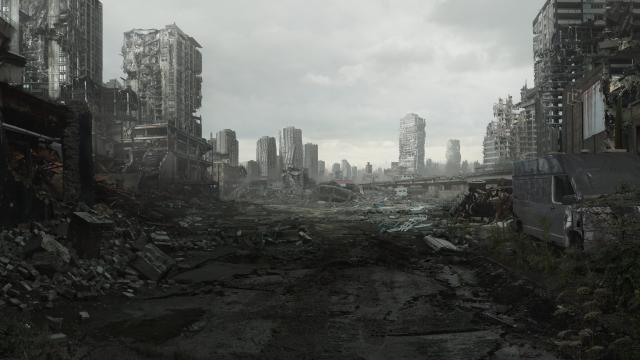With the amount of straight-up bad news we’re confronted with every day, it’s easy to feel like we’re living in the End Times — and maybe we are. We sure say we’re living in a dystopia often enough, throwing around words like “apocalypse” and “armageddon.” But what do those words mean? Are they the same thing? And what about “doomsday”?
What is the apocalypse?
The term “apocalypse” refers to any time when a supernatural being — like a god — reveals mysteries or the future to a human, according to Greg Carey, author of Ultimate Things: An Introduction to Jewish and Christian Apocalyptic Literature. Per Merriam-Webster, it also refers to “an imminent cosmic cataclysm in which God destroys the ruling powers of evil and raises the righteous to life in a messianic kingdom.”
Those, of course, are not how we commonly use the word these days. When you google “apocalypse,” you get this succinct definition, which is closer to how we use the word today: “The complete final destruction of the world, as described in the biblical book of Revelation” or “an event involving destruction or damage on an awesome or catastrophic scale.”
So, “apocalypse” has religious connotations a lot of the time, but not always. When we speculate about what a nuclear holocaust might look like, for instance, we tend to say it would be “the apocalypse.” Nuclear destruction is manmade, as are most of the things that could cause global damage, but this idea has its roots in the Bible.
What is armageddon?
You might sometimes hear someone refer to “armageddon” in the same way they’d refer to the apocalypse — to describe a bleak, destroyed wasteland or the end of civilisation. That’s not quite it.
Armageddon refers to the location of the final battle between earthly evil and God, as laid out in the New Testament, according to Britannica. The word can refer either to the place where this battle will be held before the Day of Judgment, or to the battle itself. That battle could lead to some type of apocalypse, but it won’t actually be the apocalypse.
What is doomsday?
You already know about the Doomsday Clock, which the Bulletin of the Atomic Scientists uses to indicate how close humanity is to annihilation, but what is doomsday? Like the apocalypse and armageddon, this one has religious roots, but has grown in its definition as the horrors of the world have expanded beyond the scope of what’s covered in centuries-old texts.
The word can either refer to the last day of the world’s existence or, more broadly, a time of great danger. In Christianity, it refers specifically to the day of the Last Judgment. The Cambridge English Dictionary says it’s “the end of the world, or a time when something very bad will happen.”
The Bulletin of the Atomic Scientists says that their Doomsday Clock actually positions the apocalypse at midnight, then repositions the clock’s hands annually to show how close we are to destruction based on threats to humanity and the planet like nuclear escalation and climate change. So, doomsday is pretty interchangeable with the apocalypse, although it usually refers to a major event and the apocalypse can generally be understood to be a little more ongoing.

Leave a Reply
You must be logged in to post a comment.